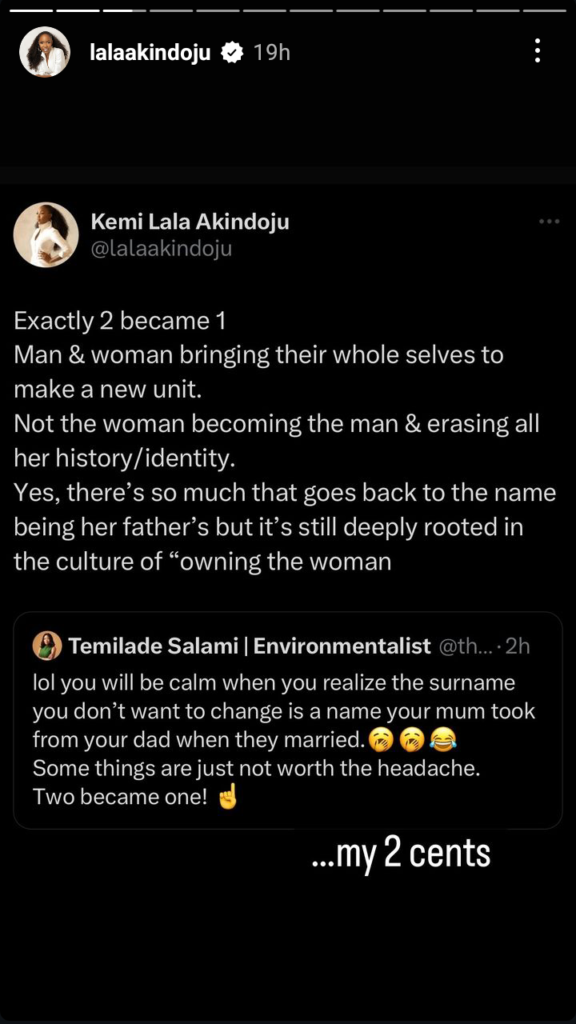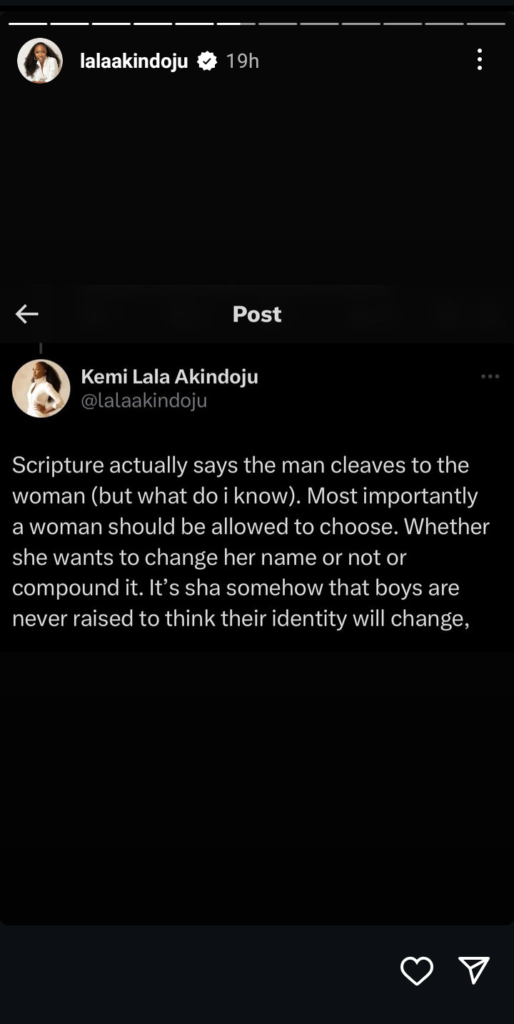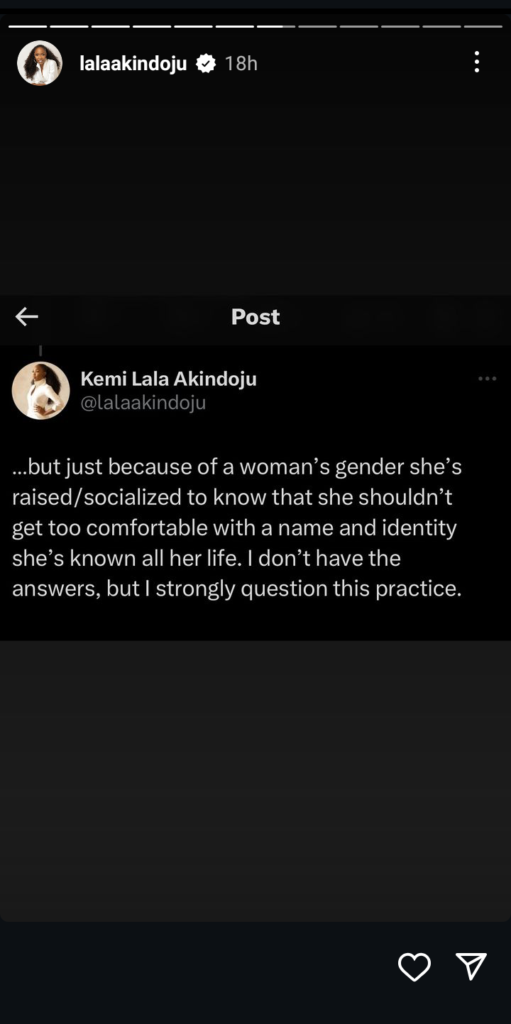Actress Kemi Lala Akindoju has sparked a lively discussion on social media regarding the tradition of women changing their surnames after marriage.
In a provocative post on X, Akindoju questioned both the fairness and religious justification behind this long-standing custom.
In a compelling post on X, Akindoju questioned the fairness and religious basis of the tradition.
She proposed that instead of women taking their husbands’ surnames, couples should combine their last names to represent the unity of “two becoming one.”
She voiced concerns about the neglect of women’s contributions to childbirth and the automatic assignment of children’s surnames and state of origin to the father.
Additionally, she criticized the societal norm that expects women to adopt a new name and identity after marriage, while men are not similarly expected to alter theirs.
Akindoju supported the idea that women should have the freedom to decide whether to retain their maiden name, change it, or use a combination of both.
She wrote:
“Honestly, if we really want to follow ‘2 shall become 1,’ the couple should merge both surnames. I still question the children automatically coming from the man’s state of origin, his surname, and the fact that the man “owns” the child. The whole thing messes with my head so much.
“Yet it’s the woman who physically goes through a life transforming process to birth the children. Yet, she’s relegated. I may not have the answers, but it troubles my entire being and I am yet to find the scripture that says the woman must take the man’s name.
“Scripture actually says the man cleaves to the woman (but what do i know). Most importantly, a woman should be allowed to choose. Whether she wants to change her name or not or compound it. It’s sha somehow that boys are never raised to think their identity will change.
She added:
“But just because of a woman’s gender, she’s raised/socialized to know that she shouldn’t get too comfortable with a name and identity she’s known all her life. I don’t have the answers, but I strongly question this practice.”



















